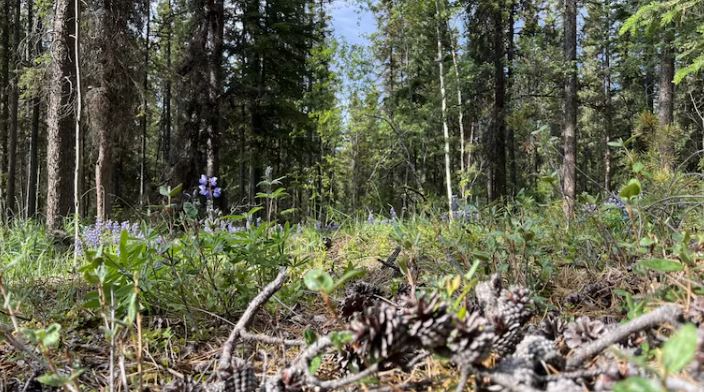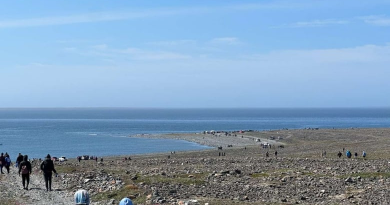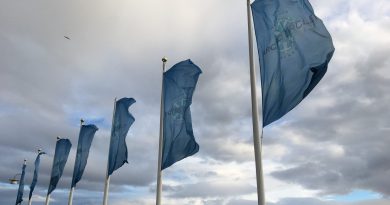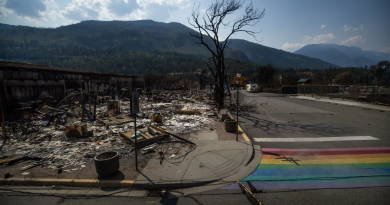Whitehorse saw driest June in nearly a century

If it seemed drier than normal last month in Whitehorse, you weren’t imagining it — the city saw the lowest amount of precipitation on record for any June since record-keeping began in 1941.
Megan Bercier, a hydrologist with the Yukon government, says it was a combination of factors including a below-average snowpack, a delayed melt, and no sustained period of hot weather to trigger glacial melt.
However, Bercier says it hasn’t quite reached drought conditions.
“We’re not currently in a drought. We are under extremely dry conditions, although … we’re coming back to average conditions as of, kind of early July,” she said.
“We had really low water levels throughout June and they’ve kind of just picked up now and reached kind of average water levels.”
Most of the territory was under fire restrictions in late June because of the dry conditions but those restrictions were lifted earlier this month.
Bercier said most regions of the Yukon are now reaching average water levels for this time of year.
Dave Phillips, a senior climatologist at Environment Canada, said Whitehorse has seen relatively dry conditions since the beginning of the year. From January to June, every month except February saw below-normal precipitation.
He also says that’s been a common pattern over the last decade.
“If we take a look at Whitehorse, I think there’s no question about it that conditions have been drier than normal,” Phillips said.
“You’d have to really get almost a monsoon to restore the kind of water levels and the moisture in the ground that we’ve lacked in the last 10 years.”
With files from Isabel Ruitenbeek
Related stories from around the North:
Canada: N.W.T. Indigenous governments get $15M to deal with 2023 wildfires’ impact, CBC News
Finland: Last week’s wildfires in Northern Lapland cost taxpayers more than €100k, Yle News
Greenland: New model predicts flow of Greenland’s glaciers, Alaska Dispatch News
Norway: John Kerry to visit Arctic Norway to witness climate impacts, The Independent Barents Observer
Russia: New NOAA report finds vast Siberian wildfires linked to Arctic warming, The Associated Press
Sweden: High risk of wildfires in many parts of Sweden, including North, Radio Sweden
United States: Wildfires in Anchorage? Climate change sparks disaster fears, The Associated Press



